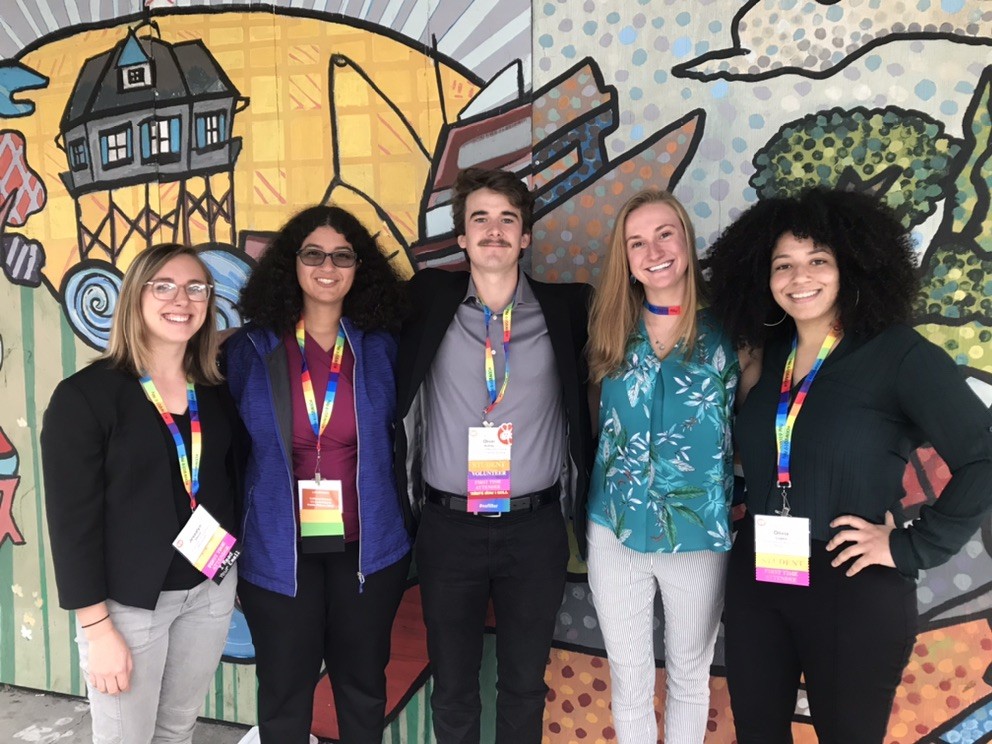Eight students will be presenting the summer work at the Ocean Sciences Meeting in March 2022!
REU Topics and Mentors
.jpg)
Learn about the research topics studied by students participating in Maryland Sea Grant's Research Experiences for Undergraduates program.
Mentors study a number of topics listed below. Those listed under a topic below have hosted an REU student in the past five years. Not all mentors are available every year.
Click on a mentor's name to find out 1) their expertise, education, and contact information and 2) a list of students that the mentor has advised and abstracts of the students' research projects.
The following mentors will likely accept students this year: Matthew Gray, Lora Harris, Dong Liang, Javier Lloret, Mario Tamburri, Ryan Woodland
Research covers sedimentation processes and interactions with sediment-dwelling organisms and others that reside on the bottom for part or all of their life histories.
Genetics, chemical transformations, biogeochemistry, and nutrient cycling in the Chesapeake underlie the high productivity of the system and are an important focus of research.
Documenting and investigating changes in hurricane activity, climate variability, and decadal- to century-scale trends using biogeochemistry of natural systems influenced by climate and numerical modeling.
Linkages of physical conditions, nutrient inputs, plankton production, and fish yields are under study in both observational and modeling programs.
Research addresses a diverse array of pollutants and processes that occur in the Bay using chemical, genetic, and physiological assessment.
Recruitment, habitat, and stock assessment for managing important commercial fish populations are active areas of research. Other areas include aquatic species conservation.
Mathematical constructs and data analysis, including ecosystem models and remotely sensed data, are used to develop predictive tools on the function of Chesapeake Bay.
Research focuses on aquatic microbial ecology, microbial food webs, microbial cycling, composition and activity of natural microbial communities. Researchers use molecular and genomic approaches (rRNA, DNA, bioinformatics) to study aquatic microbes and quantify genetic abundance/expression.
Focus is on physical structure of the Chesapeake, including sediment distribution and transport, circulation, stratification, and small-scale processes.
Previous Mentors
Below is a list of mentors who have previously hosted REU students, but are either no longer at one of the participating laboratories or not available to mentor new students.


